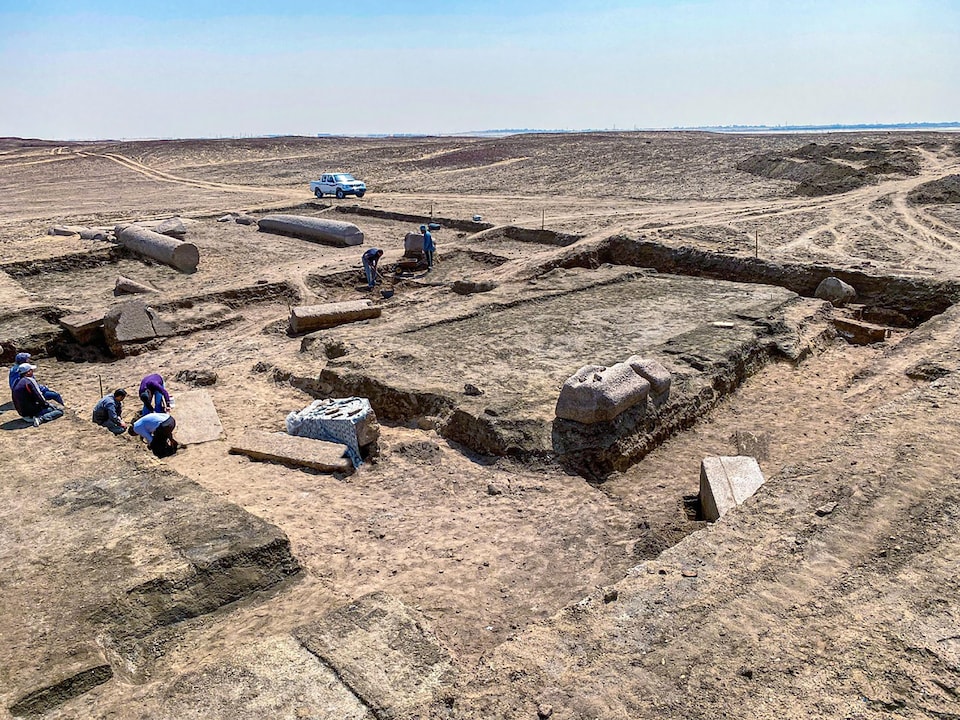The ruins of a temple dedicated to the Greek god Zeus were discovered at Sinai by Egyptian archaeologists.
The Supreme Council of Egyptian Antiquities said in a statement that the ruins of the temple were excavated at the archaeological site of Tell el-Farma northwest of Sinai.
The site of Tell el-Farma is also known by the ancient name of Pelusium. Its origins date back to the end of the Pharaonic period and it was also used during the Greco-Roman and Byzantine periods. Ruins from the Christian and Islamic eras were also found there.
The Secretary General of the Supreme Council of Antiquities said archaeologists have excavated the ruins of the temple from its main gate, where two massive collapsed granite pillars can be seen. The gate was destroyed by a strong earthquake at another time.
Mr Waziri said ruins were found between the Pelusium fort and a memorial church in the area. Archaeologists have found granite blocks that may have served as stairs for worshipers to enter the temple.
Excavation at the site began in the early 1900s, when French Egyptologist Jean Clédat discovered ancient Greek inscriptions testifying to the existence of a temple to Zeus-Kasios, but he did not excavate it. , according to the ministry.
Zeus-Kasios is a fusion between Zeus, the god of the sky in Greek mythology, and Mount Kasios in Syria, where Zeus was once worshiped.
Director of Sinai Archaeological Sites Hisham Hussein explained that the inscriptions found in the area show that the Roman Emperor Hadrian (117-138) repaired the temple.
He said experts will examine the blocks and conduct photogrammetric examination to try to guess the architecture of the temple.
The temple ruins are the latest in a series of archaeological discoveries that Egypt has featured in recent years in hopes of attracting more tourists.
The tourism industry has been battered by political instability following the popular uprising in 2011 that toppled Hosni Mubarak. The sector has also been hit hard by the coronavirus pandemic and the Russian invasion of Ukraine.
Source: Radio-Canada
